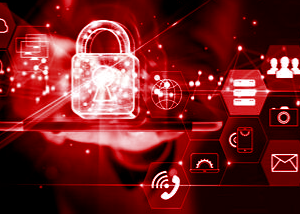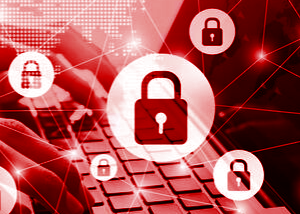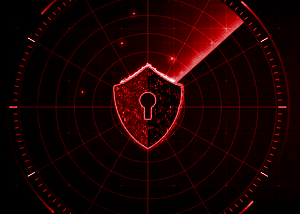Your digital profile: Own IT. Secure IT. Protect IT.
You’re accessing archived content
This is archived content from the UIT website. Information may be outdated, and links may no longer function. Please contact stratcomm@it.utah.edu if you have any questions about archived content.
This year’s National Cybersecurity Awareness Month (NCSAM) theme — “Own IT. Secure IT. Protect IT.” — focuses on personal accountability and proactive behavior in security best practices and digital privacy, which helps protect University of Utah students, patients, faculty, and staff.
University Information Technology's Information Security Office (ISO) encourages you to take the time to become educated about the technology you use, how to secure your devices and personal information, and how to maintain digital profile.
Good cybersecurity starts with you.
Own IT.
Understand your digital profile.
Internet-based devices are present in every aspect of our lives: at home, school, work, and on the go. A constant connection provides opportunities for innovation and modernization, while introducing opportunities for potential cyberthreats that can compromise your most important personal information: your digital profile.
Think of your digital profile as the electronic footprints you leave on the internet. Some footprints are intentional — for example, what you post on Facebook or LinkedIn. Others may have been left unintentionally or indirectly — such as when a friend posts something about you.
To help keep your information safe and secure, take some time to understand the devices and applications you use every day.
- Be familiar with the privacy settings in the software that you use.
- Be cautious with your social media posts. Are you sharing too much information?
- Learn about the Internet of Things (IoT) and smart technology that you are bringing into your home or office. For example, the doorbell you installed with a camera in it. Where are the videos or images saved? Who has access to them?
- Don’t let your tech own you. Learn how to configure your devices correctly or seek out someone who does. Many of the devices you buy will have a default user name and password that you should change immediately; otherwise, you have just opened a giant front door into your digital life. Consult manufacturer documentation and visit or join user groups regarding the technology you own and use.
Secure IT.
Secure your digital profile.
Cybercriminals are very good at obtaining personal information from unsuspecting victims, and the methods are becoming more sophisticated as technology evolves. Social engineering is on the rise. You will most likely experience this through phishing or scams, which are designed to convey a sense of fear, urgency, or doubt.
To protect yourself, take the training provided by the Information Security Office in Bridge (now LearningHub, campus employees), LMS (hospital employees), or Canvas (all university students, faculty, and staff). You also should apply additional layers of security to the services you use — like multi-factor authentication (MFA) — in case your username and password are stolen. The best defense is a layered approach.
Learn more about multi-factor authentication and phishing.
Protect IT.
Maintain your digital profile.
Every click, share, send, and post creates a digital trail — electronic footprints — that can be exploited by cybercriminals. To protect yourself, you must understand, secure, and maintain your digital profile. That means being proactive.
- Be familiar with and routinely check privacy settings to help protect your privacy and limit cybercrimes. For example, have you recently reviewed the settings for your social media accounts
- Practice good cyber hygiene, which, in a sense, is similar to personal hygiene. We all want to be personally healthy, and the same goes for our cyber health. Some regular preventive steps go a long way toward better cyber health.
Additional information can be found at the Stay Safe Online and Stop. Think. Connect. websites, which provide excellent tips on how protect yourself. The Electronic Frontier Foundation also has provides tips, tools, and guides for safer online communications.
Remember: You are responsible for owning, securing, and protecting your digital profile.
How to report cybersecurity incidents
There are many types of cybersecurity incidents, such as malware, phishing, password compromise, and unauthorized data disclosure, to name a few. If you think a cybersecurity incident has occurred, report it ASAP. For more information on security incidents and how to report them, visit the Report a Security Incident article in the UIT Knowledge Base or use the information below:
- Campus: 801-581-4000 or helpdesk@utah.edu
- Hospitals and clinics: 801-587-6000 or servicedesk@hsc.utah.edu




